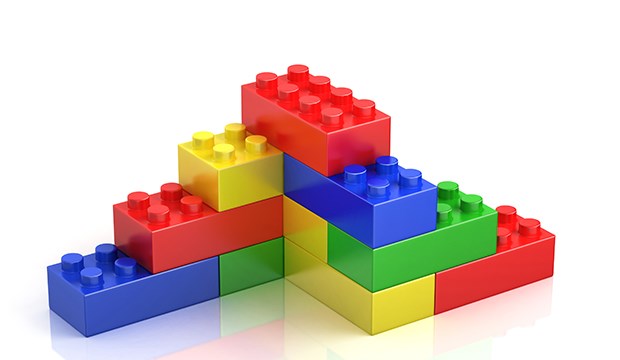Everyone likes to play with LEGO, but the Good Spirit School Division has found the popular building blocks can be part of education.
Starting last fall, a select group of students in the Yorkton and area Public Schools have been able to access an exciting new program called LEGO Club.
The club runs bi-weekly at MC Knoll School and presently includes approximately 40 students from Columbia, Dr. Brass, Yorkdale, MC Knoll, and Saltcoats School.
The program came into being in the Yorkton area after a Speech-Language Pathologist from the Good Spirit School Division attended a Professional Development opportunity in Moose Jaw where she learned of LEGO therapy. With a few minor adaptations, Michele Haczkewicz and a group of facilitators came up with what is now known as ‘LEGO Club.’ She, along with three other speech pathologists and two speech language assistants, received the necessary training and are now certified LEGO therapists.
LEGO Club is a program designed to create conditions for collaborative play between small groups of two to three children.
The club environment provides opportunities for social interaction, turn taking, joint attention, social communication, and problem solving, explained Deb Bulitz, one of the group’s supervisors.
“This is for social skills and creating friendships,” she told Yorkton This Week.
Bulitz said as the students work with LEGO through the sessions they are building not only unique creations with the blocks, but also a range of social skills.
The initial social skill building lesson and group interactions are supervised by the facilitators (coaches), made up of a group of speech-language pathologists, counsellors, a psychologist, speech-language assistants, student support teacher and a student services coordinator. In-school administrators, as well as educational assistants, have also played a role in the facilitation of the LEGO Clubs, explained Haczkewicz.
Kacey Giroux explained the structure of the sessions is built around each child in the group being assigned a role of either an “engineer,” a “supplier,” or a “builder.”
The engineer is given a set of directions, and is required to request specific pieces from the supplier and then instruct the builder on how to complete the task at hand.
The supplier provides the builder with the required pieces of LEGO to complete the task.
The builder constructs the LEGO set as per the engineer’s instructions.
Throughout the sessions that last 45-minutes, the participants rotate through the three roles.
Following the completion of their project, students then get to “free build,” which allows them to have time to build their own project which may be an individual, or group creation.
The benefits to the students from the participating Yorkton and area schools that take part are enormous, offered Haczkewicz.
The first aspect of the program is obviously having fun.
“Who wouldn’t want to go to school and be a part of a LEGO Building Club? The Club groups children together to complete a LEGO task that is not intimidating and is something that they may have experience with on their own already,” said Haczkewicz. “It is not a new skill they have to learn to take part, all kids have played with LEGO.
“What the Club does do, however, is gives the students an opportunity to practice developing skills in a real-life situation with a group of peers. It is a team building experience that reinforces the benefits of collaboration. It allows the students to connect with others that they might not otherwise have the opportunity to meet from other schools. This connection leads to a smoother transition into high school down the road as the students will have formed friendships with a few of their classmates ahead of actually attending high school.”
Bulitz said for some students building closer friendships which can be part of a support group of their own as they move on to high school will be a definite plus coming out of the program.
The Club gently supports the students as it pushes them to move a little outside of their comfort zone so that they experience success in a situation that they might otherwise not be comfortable trying, said Haczkewicz.
The program did cost money to establish, money not available in the normal budget. Bulitz said they have to thank the Painted Hand Casino for their generous grant which has supported the program by providing funding for the purchase of the various LEGO kits which are utilized by the groups, and assisting with the costs of snacks and transportation.
So how are students selected for participation in the program?
The Clubs are open to a wide variety of students who are selected by their elementary schools to participate, detailed background material on the program. “The beauty in the Club is that all students are able to join in play and play an active role. The groups are especially beneficial for students that are working on developing communication skills including articulation, language, fluency, pragmatics, and anxiety relating to social situations. Students with Autism Spectrum Disorder (ASD) find the program to be of benefit as the structure allows them to develop and practice skills that can be challenging. Positive and supportive peer models have also been referred to work within the various LEGO Clubs that the group has established.”
Sessions are winding down for the year; however, given the success, the group is making plans for next year, said Haczkewicz.




